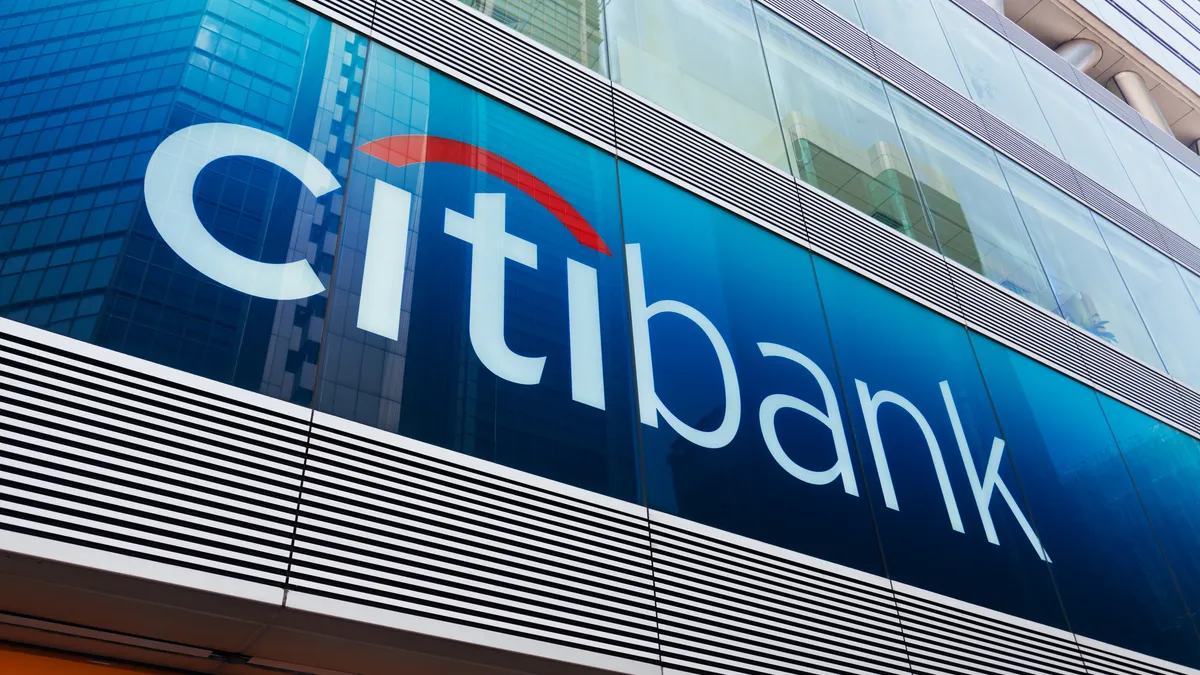Dive Brief:
- Citi on Friday reported net income of $4.6 billion in the fourth quarter of 2020 — a 44% increase from the third quarter, but a 7% drop year over year.
- The bank released $1.5 billion in credit loss reserves, after setting aside $436 million in the third quarter and $253 million a year ago. That brought credit costs down more than $2 billion compared to the same period last year.
- Citi's overall revenue for the fourth quarter, however, dropped 10% due to weaker performance in global consumer banking, the bank's institutional clients group, corporate and other areas. For all of 2020, Citi's performance reflected a tough economy weighed down by the coronavirus pandemic, with net income falling 41% to $11.4 billion, while revenues remained flat at $74.3 billion.
Dive Insight:
Compared with the third quarter, weaker year-over-year revenue increases in fixed-income trading (7% in the fourth quarter, compared to 18% in the third quarter) were offset by stronger revenue growth in equities trading (57%) and deposit growth (20%).
Citi's global consumer banking unit continued to show double-digit declines in revenue — a 14% drop compared with the same period last year. Strong deposit growth and performance in wealth management were offset by lower card volumes and lower interest rates across all regions, reflecting the economic impact of COVID-19.
"As a sign of the strength and durability of our diversified franchise, our revenues were flat to 2019, despite the massive economic impact of COVID-19," said CEO Michael Corbat, in his final quarterly earnings release leading the bank. Corbat is set to retire next month as Jane Fraser, Citi's president and CEO of global consumer banking, ascends to the helm.
Revenue from Citi-branded cards, meanwhile, fell 13% to $2.1 billion, reflecting lower purchase sales and higher payment rates driving lower average loans. At $1.1 billion, retail banking revenues were flat compared to the prior quarter, and decreased 1% year over year.
The bank's operating expenses, which increased 2% to $10.7 billion, reflect investments in infrastructure, risk management and controls, though the bank's report did not say the increase was related to the $400 million penalty the Office of the Comptroller of the Currency (OCC) handed the nation's third-largest bank in October over persistent issues in risk management, data governance and internal controls.
Corbat struck an optimistic tone on the bank's progress in a difficult year.
"We generated $11 billion in net income despite our credit reserves increasing by $10 billion as a result of the pandemic and the impact of current expected credit losses," he said. "Looking back, I am proud of the progress the firm has made since I became CEO. We have streamlined our consumer business and embraced the shift to digital so we can serve our clients the way they want to be served."













